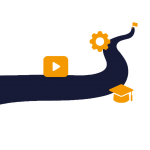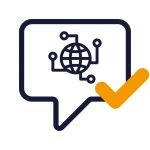About the TRESCA project
Post-truth, fake news and misinformation are internet-age phenomena that raise suspicion of the credibility and reliability of (scientific) information. While news media have been suffering from a decline of trust in general, the negative consequences for scientific communication are particularly severe, because these can be abused to promote propaganda and conspiracies. In Europe, the media is one of the least trusted democratic institutions (Edelman Trust Barometer, 2018). At the same time, the media is also the most important or common communication channel translating and disseminating scientific information from researchers to the general public.
The TRESCA project members have taken on the challenge to study this challenge for the European Union, under the Horizon 2020 funding scheme. The work plan listed on this page provides insight into how the consortium aims to do this.
Project name: Trustworthy, Reliable and Engaging Scientific Communication Approaches
Project Acronym: TRESCA
Project number: 872855
Project Coordinator: Erasmus University Rotterdam
Start Date: January 2020
Duration: 28 Months
Contact: tresca[at]eur.nl
Research results: Cordis page

Approach
TRESCA focuses on the communication of findings from the Social Sciences and Humanities (SSH) research related to Science, Technology, Engineering and Mathematics (STEM) developments around digitalisation. Digital devices and services increasingly permeate people’s everyday lives, which is why TRESCA relies on visual communications to empower and inform people with knowledge to thrive in today’s digital environment.
Three key societal developments are at the heart of TRESCA: misinformation and digital safety, environmental health, and automation and the future of skills and work. During the project, three key tools will be developed: a tested and assessed animated science communication video, a prototype of a misinformation widget working on encrypted communication channels to help identify trustworthy sources, and a Massive Open Online Course (MOOC) for scientists, journalists and policy makers to learn how to best facilitate reliable and trustworthy science communication.

Objectives
The TRESCA project aims to develop trust in science through the innovation of communication practices of scientific researchers, journalists and policy makers. By drawing on the expertise of scholars and practitioners from multidisciplinary backgrounds, TRESCA dives into the question: what drives public trust?
Large scale experimental survey research and qualitative, deliberative research are some of the major methods TRESCA employs to investigate the posed questions. This project was designed with the aim of building long-term impact and creating positive change through engaging with and training stakeholders such as scientists, journalists, policy makers and the public. By doing so, the project urges to boost the production, exchange and use of more trustworthy, reliable and accurate scientific communications. This focus is what makes TRESCA unique.
Work Plan
The TRESCA project is divided into seven interconnected work packages (WPs). Each work package of the TRESCA project has a distinct role to realise the defined ambitions and impact.
WP1: Science communication in context (Lead: Zentrum für Soziale Innovation) focuses on creating in-depth conceptual and theoretical understanding of the way scientific findings and methods are perceived by citizens depending on the adopted communication method. This first work package builds on the understanding of trends in science communication in relation to various policy levels: internationally, on EU level and member state levels. Furthermore, the work package will focus on creating a new baseline for state-of-the-art science communication videos.
Deliverables:
- D1.1: Meta-Analysis map: relevant factors shaping public perception of science communication
- D1.2: Science communication and policy trend report and policy brief
- D1.3: Report with elaborated focus area descriptions and trending topic analysis
- D1.4: Fully developed scenario description for video scripting and development
- D1.5: Overview of (Dis)Incentives for scientists to engage in SciCom
WP2: Public perceptions and experiences of science communication (Lead: Observa) is organized around the following aims. First, the WP will focus on assessing citizen’s perceptions on scientific news quality and their ability to distinguish accurate and false communication. Second, the WP will map out the set of latent imaginaries, emotional charges and value-based judgements that underpin people’s framing of events, phenomena and relevant news. It will give priority to societal understanding and desirability of issues and methods of science communication by involving citizens in discussions and innovation efforts.
Deliverables:
- D2.1: Citizen SciCom workshop plan and scripting, instructions and recruitment strategy
- D2.2: Dataset with transcriptions and other qualitative data from the workshops
- D2.3: Synthesis report of SciCom Communication Workshops
WP3: Experimental cross-country online research (Lead: Consejo Superior de Investigaciones Científicas) is designed to test the effects of different factors on people’s perceptions of trust in scientific communication through online experiments. In particular, it will study the influence of socio-demographic attributes on perceptions and citizen engagement with science communication efforts. The WP also assesses the effect of cultural, institutional and territorial specificities on people’s trust in SCICOM methods and sources in order to compare variations between an array of science communication methods, adopted at international, EU and member state levels.
Deliverables:
- D3.1: Set of illustrated vignettes with questions
- D3.2: Complete and cleaned factorial survey dataset
- D3.3: Experimental survey analysis and synthesis report
WP4: Development of science communication artefacts (Lead: Kurzgesagt) focuses on creating artefacts that support quality and reliability of new science communications. It suggests new innovative ways to open up science and innovation broadly to society by developing visual content and videos. Lastly, it aims to identify good practices and policy guidelines to increase the accuracy of and trust in science communication, acknowledging the fact that dwindling resources in science journalism have reduced the ability to critically assess and accurately report scientific news.
Deliverables:
- D4.1: New SciCom video script and storyboard
- D4.2: White paper on best practices for producing science communication videos
- D4.3: Science communication enhanced SciCom video
- D4.4: Proof-of-Concept (PoC) of Misinformation Widget
- D4.5: White paper on potential benefits of developing a misinformation widget for encrypted communications
WP5: Cultivating excellence in science communication (Lead: Erasmus University Rotterdam) focuses on developing and implementing a Massive Open Online Course (MOOC) for journalists, policy makers, scientists, and the wider public to improve their understanding and applications of science communication. Additionally, the WP will bring forward educational activities within advanced university programs in partner universities to integrate knowledge gained from project activities and research results.
Deliverables:
- D5.1: MOOC development and implementation report
- D5.2: Focused launch of completed TRESCA MOOC
- D5.3: Testing, evaluation, and revision of MOOC report
- D5.4: Public launch of MOOC and press release
- D5.5: Integration plan of TRESCA knowledge into advanced university programs
WP6: Dissemination and stakeholder engagement (Lead: Science|Business) focuses on dissemination of the project, the communication activities to promote the project and the activities it will organise, as well as making its larger circulation among key stakeholders possible.
Deliverables:
- D6.1: Project website, social media accounts, and other communication channels
- D6.2: Planned Events
- D6.3: Final consortium external engagement and events report
- D6.4: Academic articles submitted to peer-reviewed journal
- D6.5: Blog section of project website live
- D6.6: Final Policy Brief
- D6.7: Exploitation plan Science Communication Artefacts and MOOC
- D6.8: Concluding conference report and evaluation
WP7: Project Management and coordination (Lead: Erasmus University Rotterdam) focuses on all management aspects of the TRESCA project, and orients the trajectory of the work.
Deliverables:
- D7.1: Kickoff meeting report
- D7.2: Data management plan
- D7.3: Collated internal advise on TRESCA project
- D7.4: Risk management and quality assurance plan
- D7.5: Release of Anonymised Dataset
WP8: Ethics requirements (Lead: Erasmus University Rotterdam) is implemented to fulfill the ethics requirements to conduct research as part of Horizon 2020 projects.
Deliverables:
- D8.1: H – POPD – Requirement No. 1
- D8.2: POPD – Requirement No. 2
- D8.3: POPD – Requirement No. 3